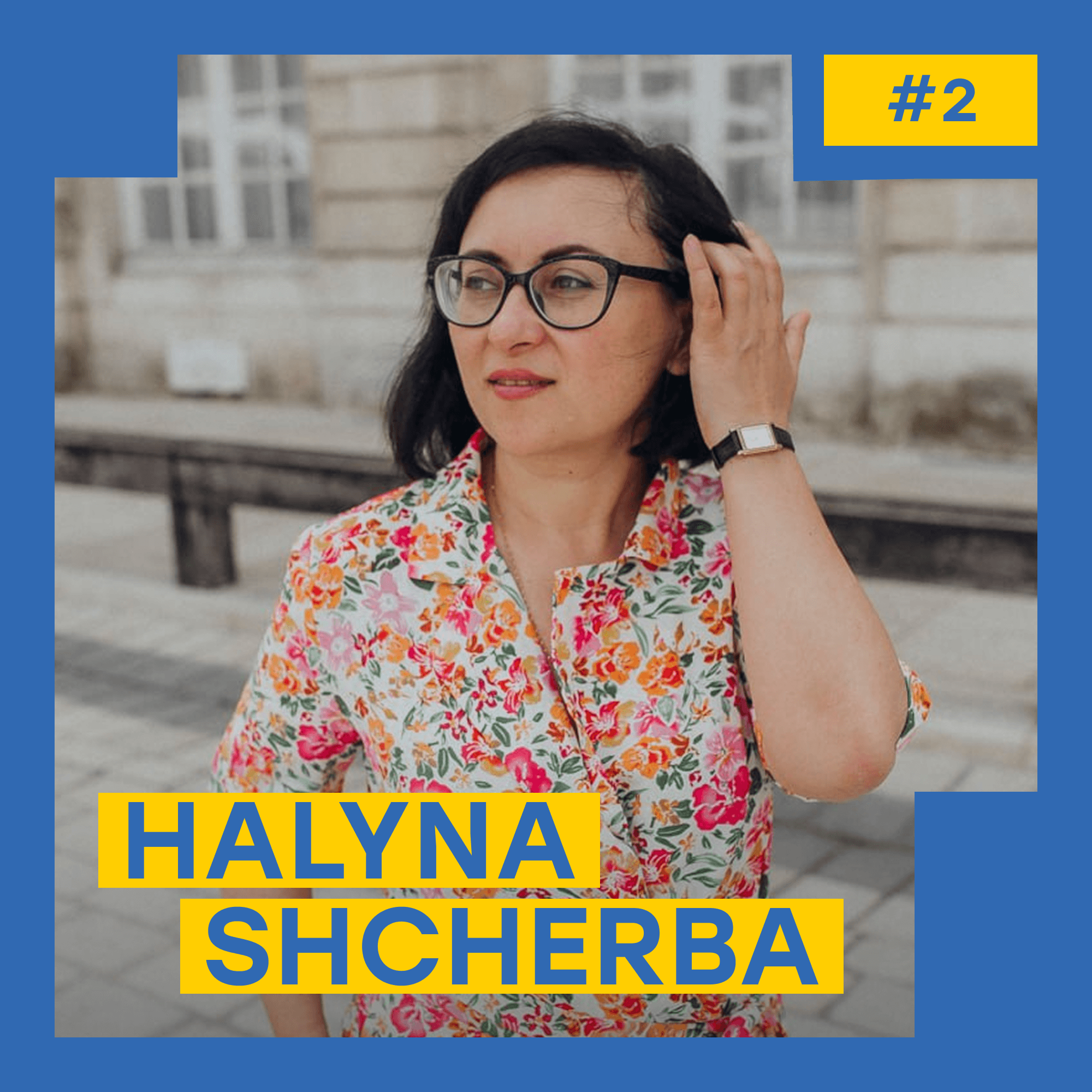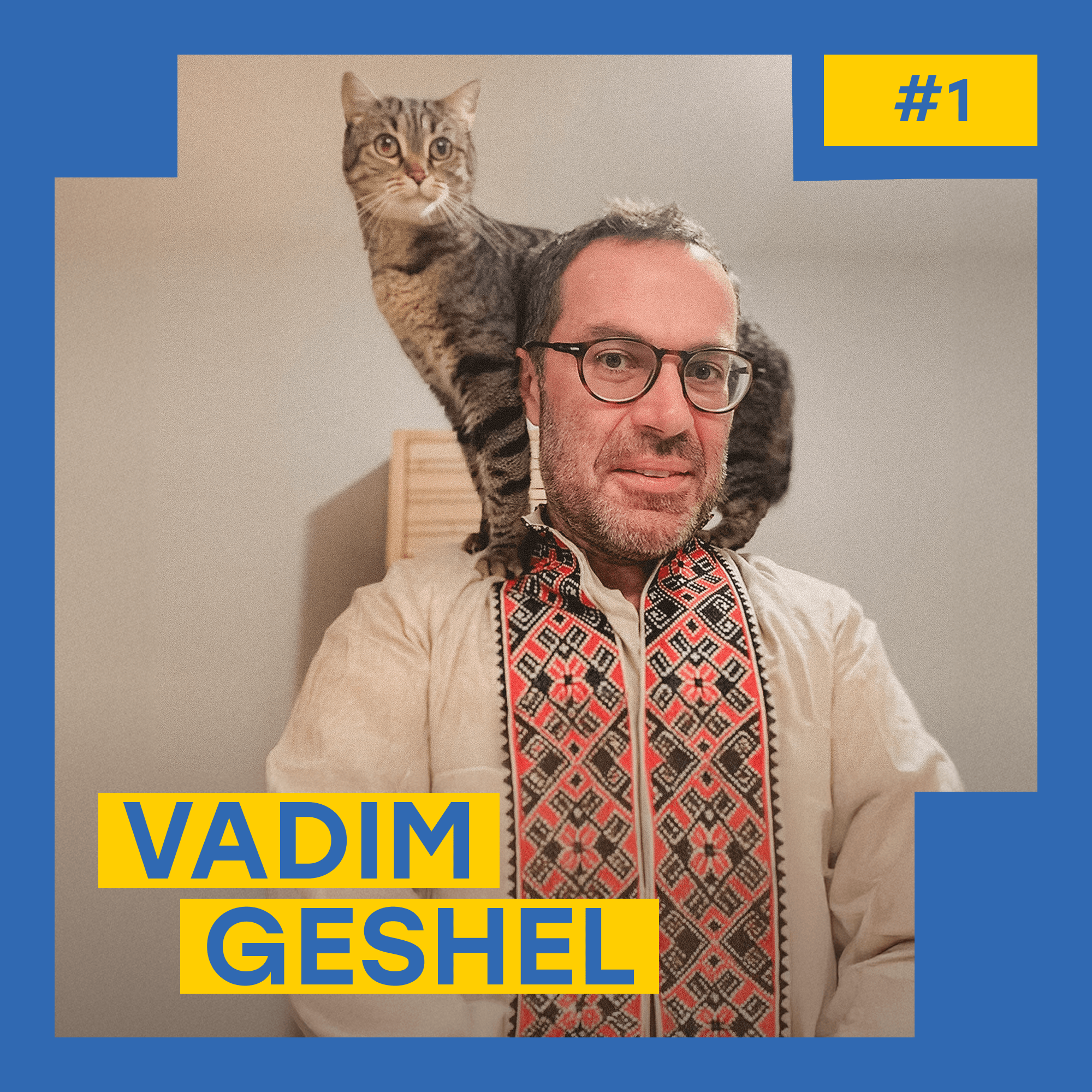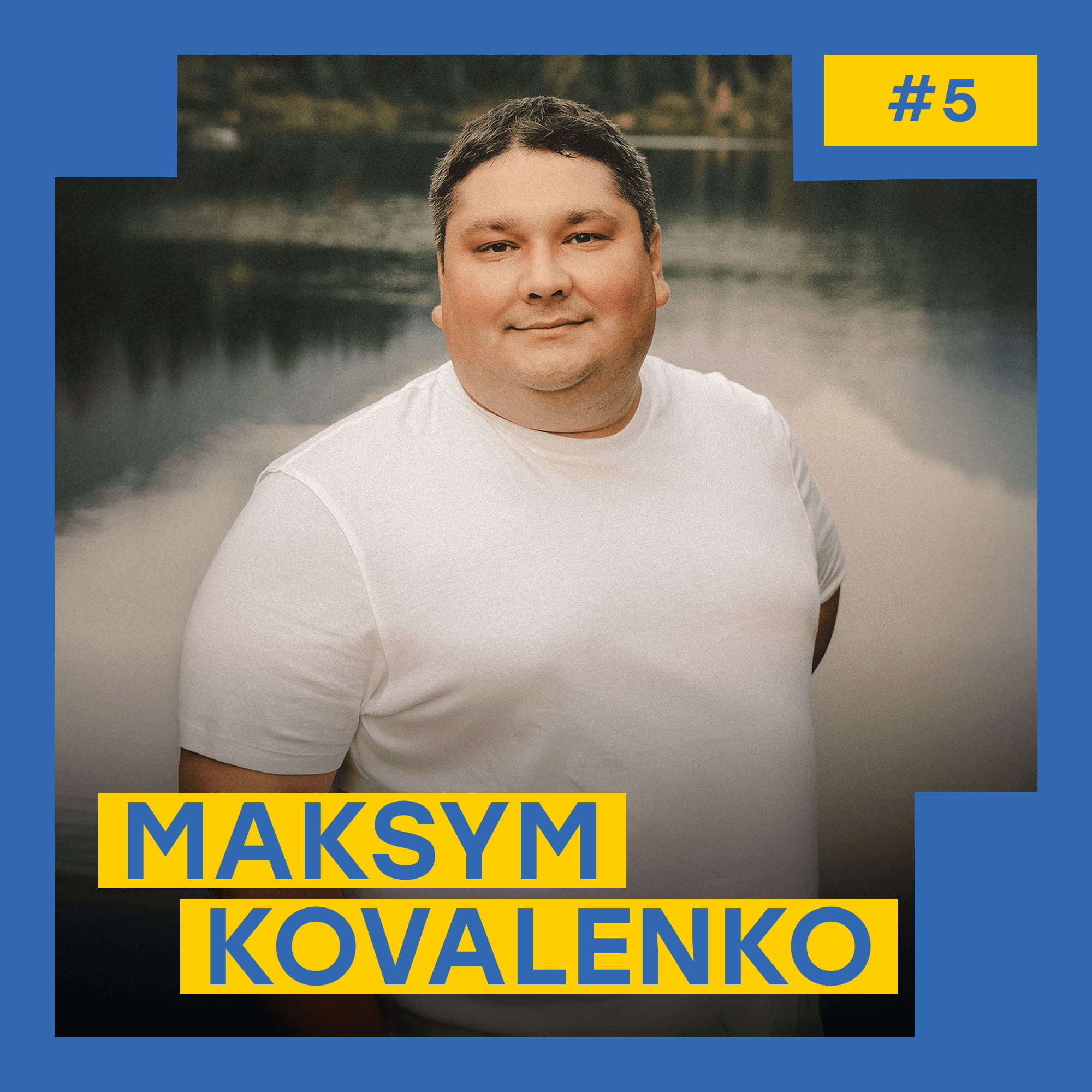Valeriia Liedenko spent a decade working in Ukrainian communications, mostly in television — including roles at STB, Novyi, and the 1+1 Media Group. After the full-scale invasion, she moved to France and began from scratch: learning the language and navigating the unfamiliar job market of a new country. Just a year later, in Paris — a city she had only visited five times as a tourist — she launched her own digital agency, Oh My Brand. Today, she hires fellow Ukrainians to create visual content and develop strategies for French companies.
In this episode of the YBBP I’m Just Asking! podcast, Valeriia talks about what it takes to work with French clients — from the mandatory liability insurance (in case someone trips over your bag on the floor), to the cost of legally renting just one square metre of workspace in Paris, and how to structure a contract so you actually get paid. This is a summary of our conversation.
In France, it was important not to lose the professional experience I had built — the things I knew how to do and genuinely enjoyed. I started applying for junior PR roles, assistant positions, SMM jobs, and digital marketing openings. But at that point, I didn’t speak French, and I had no local contacts or experience in the French job market. After about a year of sending out applications, I realized it simply wasn’t working for me.
Ukrainian specialists often raise concerns for local employers. First, most of us are under temporary protection — and from an employer’s perspective, there’s always the risk that we might leave at any moment. Second, in France, any employee can see a psychiatrist and take medical leave for depression — for up to six months, fully paid. And with everything Ukrainians have been through, there are plenty of legitimate mental health challenges. For companies, this becomes a potential issue — because you can’t replace someone on leave, and if they’re on a permanent contract, letting them go is extremely difficult.

Some French friends suggested I start my own business. It was a pragmatic decision that allowed me to begin changing my legal status to something more permanent and made me a safer choice for potential clients. As a contractor, a client doesn’t have to pay employment taxes for you and can end the collaboration at any time — it’s legally much easier than terminating an employee, especially if the contract hasn’t been fulfilled or there’s a mismatch.
There’s also the issue of taxes and immigration status. When a company hires a foreign national, they’re responsible for paying additional taxes. And once the person’s temporary protection ends, they’ll need a different type of visa. In that case, the employer must prove that this Ukrainian professional is essential and can’t be replaced by a French citizen. That’s another layer of bureaucracy most companies prefer to avoid. By choosing self-employment, I was able to bypass all of that and become a much more convenient option for the local market.
The hardest part was believing in myself. So many questions came up: Will I find my first client? Will people trust me? Do I have the language skills to convince someone to give the contract to me instead of a French candidate?
Because after that, everything follows a clear structure. You find an administrative specialist who handles the legal side of setting up a company. That part usually takes up to a week, preparing documents, filling out forms, and submitting the application to URSSAF. Within a week, you’re allowed to start working.
Opening a business bank account takes longer, usually one to two months. You can do it yourself or pay someone who knows the system; the average cost is around €100. Early in the full-scale invasion, many people offered this kind of support for free, which was a huge help. Still, you have to gather and submit all the necessary paperwork on your own.
Because I work in communications, I didn’t need to prove I was qualified to do my job. But if you’re a cosmetologist or a nail technician, for example, you’ll need a local license and have to complete a three-month course. I was officially allowed to begin working on January 1, 2023. Then it took another month or so to open the company’s bank account. I had a meeting with the bank director, where I explained my expected income, shared that I planned to stay in France long term and that this wasn’t just a temporary arrangement. I had to persuade him. The bank reviewed all of my business documents to confirm everything was legal. Some micro-entrepreneurs choose not to open a separate business account and work as individuals instead — that’s a simpler route.
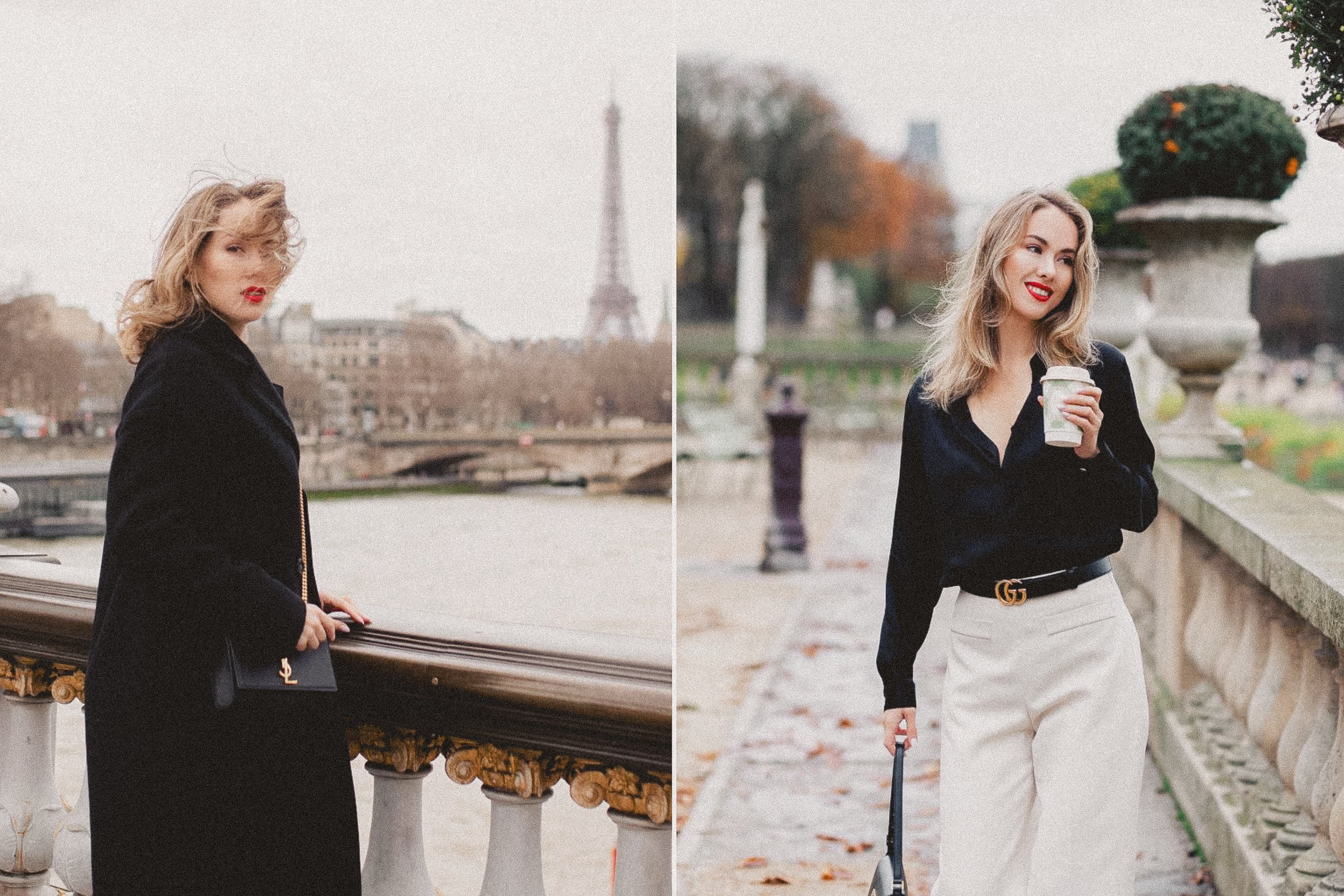
France offers a variety of business structures. If you register as a micro-entrepreneur, your annual revenue is capped — if you earn more than €77,700, you’ll need to change your tax status. If you’re aiming to build a larger company, you’ll need a business plan and roughly €30,000 in initial capital. The easiest first step is registering as the French equivalent of a sole proprietor: you can employ up to two people, and more if your business grows.
No French client will agree to work with you unless you have company insurance. They ask for it upfront, before signing any contract. I include proof of insurance in the documents I send before we begin working together. This was new to me, but it makes sense: if I go to a client’s office and someone trips over my bag and hits their head, my company’s insurance covers their treatment. Insurance also protects me from dishonest clients who might refuse to pay, or it can cover legal fees if I need a lawyer. The easiest way to get insured is through the same bank where you have your business account. It takes just a few minutes to set up and costs around €40 per month.
Here’s something you might not expect: in France, 1 square metre is the minimum space you’re allowed to declare for business registration. You can’t operate without an official workspace. When registering, you’re required to state how much space you occupy. One square metre comes with around €400 in annual taxes. My registered workspace is just 1m². I usually work at my clients’ offices — they provide me with a desk. If I want to, I can work from home. Technically, I could even hire two more people and have all of us “working” in the same 1m². Realistically, one metre means a chair and your laptop — nothing more.The easiest option is to register this workspace at your home address. The auto-entrepreneur system allows you to do that. You don’t need your landlord’s permission — if you’re renting legally, you can simply list your apartment as your business address. It’s completely acceptable and doesn’t raise any concerns.
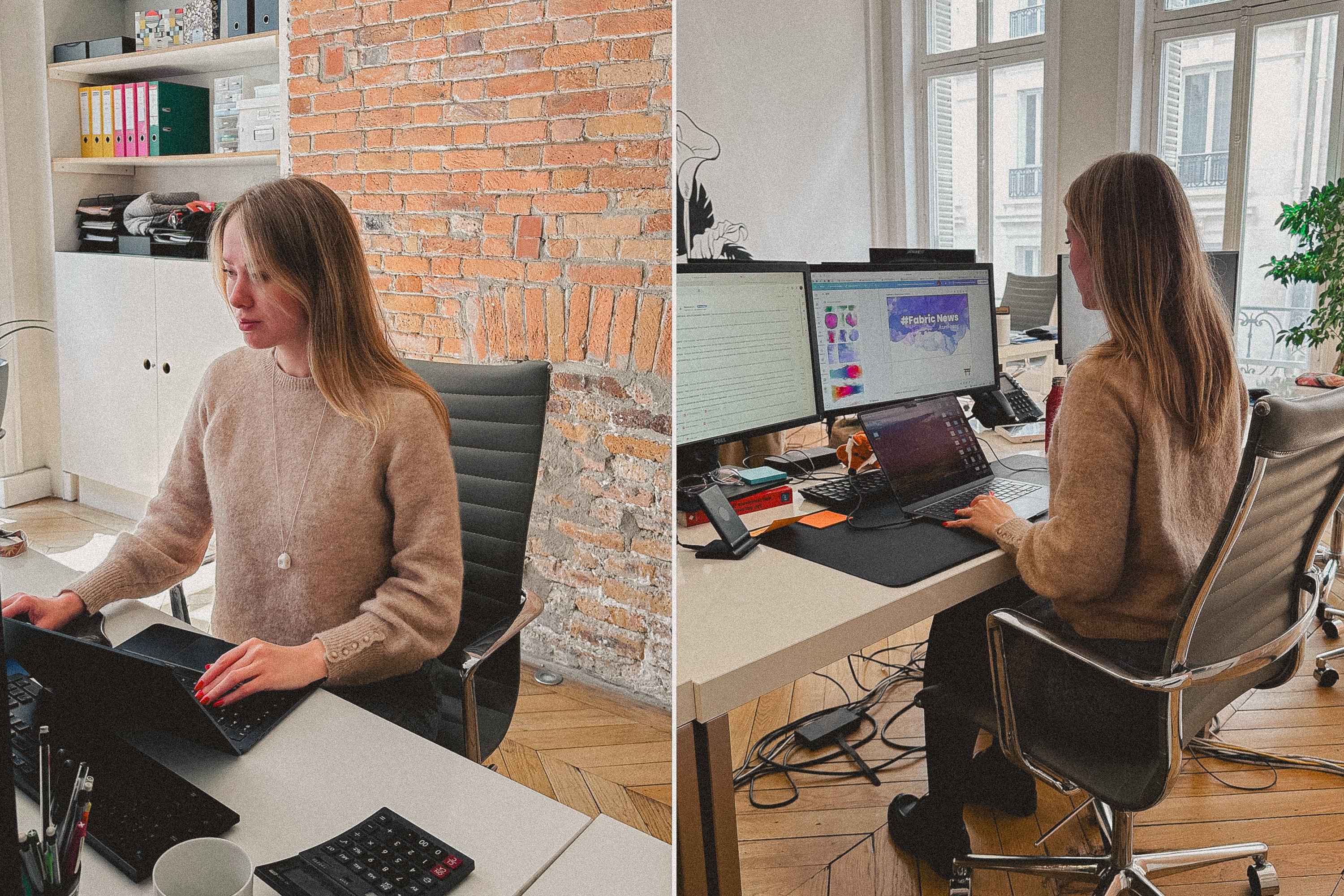
Finding commercial property in Paris is just as difficult as finding a place to live. It’s expensive, and you have to prove your financial stability. That’s why many startups and freelancers use coworking spaces — they’re much cheaper than paying €400 per square metre in a 50m² office.
Renting business space is no easier than renting an apartment. And when it comes to housing, your rent legally can’t exceed 30% of your income. The legal minimum size for an apartment in Paris is 9m² — these are small rooftop rooms that used to be a maid’s quarters. They might have a shower and a sink, but the toilet is usually shared and located down the hall. Renting 9m² costs around €600 per month. That means your after-tax income needs to be at least €1800. In Kyiv, a 35m² apartment is considered a «smart apartment.» In Paris, that’s a standard full-sized home — with a kitchen, living room, and separate bedroom. I had to completely reset my expectations about apartments when I moved here.
If you’re self-employed and want to switch your status from temporary protection to a titre de séjour, your monthly income must be at least equal to the French minimum wage — roughly €1800. That amount can be enough to live comfortably in a small town or region. But in Paris, you’ll need more. The average salary in France is about €2400. On the bright side, healthcare and medications are free, public education is free, and childcare is income-based — if you earn the minimum wage, daycare is nearly free for your family.
I don’t sell full-time availability — I sell days. Sometimes I offer services like filming, editing, or creating video content for conferences. But overall, what I sell is my time in daily units. My clients are mostly in data consulting. They rarely come through my website.
My clients are mostly in data consulting. They rarely come through my website. Most of my work comes through word of mouth or through professional events — known here as salons — where I can introduce myself or speak as a guest. I’m incredibly grateful to my clients who are happy with my work and recommend me within their networks. I work with French clients — and that matters. To change your legal status, you need at least two annual contracts with French companies, proof that you’re paying taxes in France, and that your business activity is based here. My role isn’t just writing content or designing visuals. It’s more about helping companies see the big picture — where they’re headed, what they could be doing differently, what unique value they can offer the market. And it’s very important to understand what the client actually likes.
When it comes to B2B, LinkedIn is the main platform for communication. It’s where employer branding happens and where companies connect with partners and prospects. Facebook isn’t used for B2B at all. Instagram plays more of an employer branding role — we use it to showcase team activities, company values, or recruitment updates. But that’s no longer really B2B. Networking happens at conferences — called salons here — as well as at parties with partners or clients, and presentations.
Social media in France isn’t nearly as developed as it is in Ukraine. People are more private, and many companies still don’t see the value in having a presence on LinkedIn or Instagram. That’s something I often have to work through — explaining why it matters, giving concrete examples from my own clients, and showing how my work has helped them grow.
To be honest, my prices are lower than what French agencies charge — and that’s a competitive advantage. I also work faster, more efficiently, and with consistently high quality. There are plenty of agencies here, but their rates are often twice as high, and they work at a slower pace. French teams don’t typically meet the timelines I can deliver. Clients usually start with a one-off collaboration. If they’re happy, we continue working together, tackling specific tasks step by step.
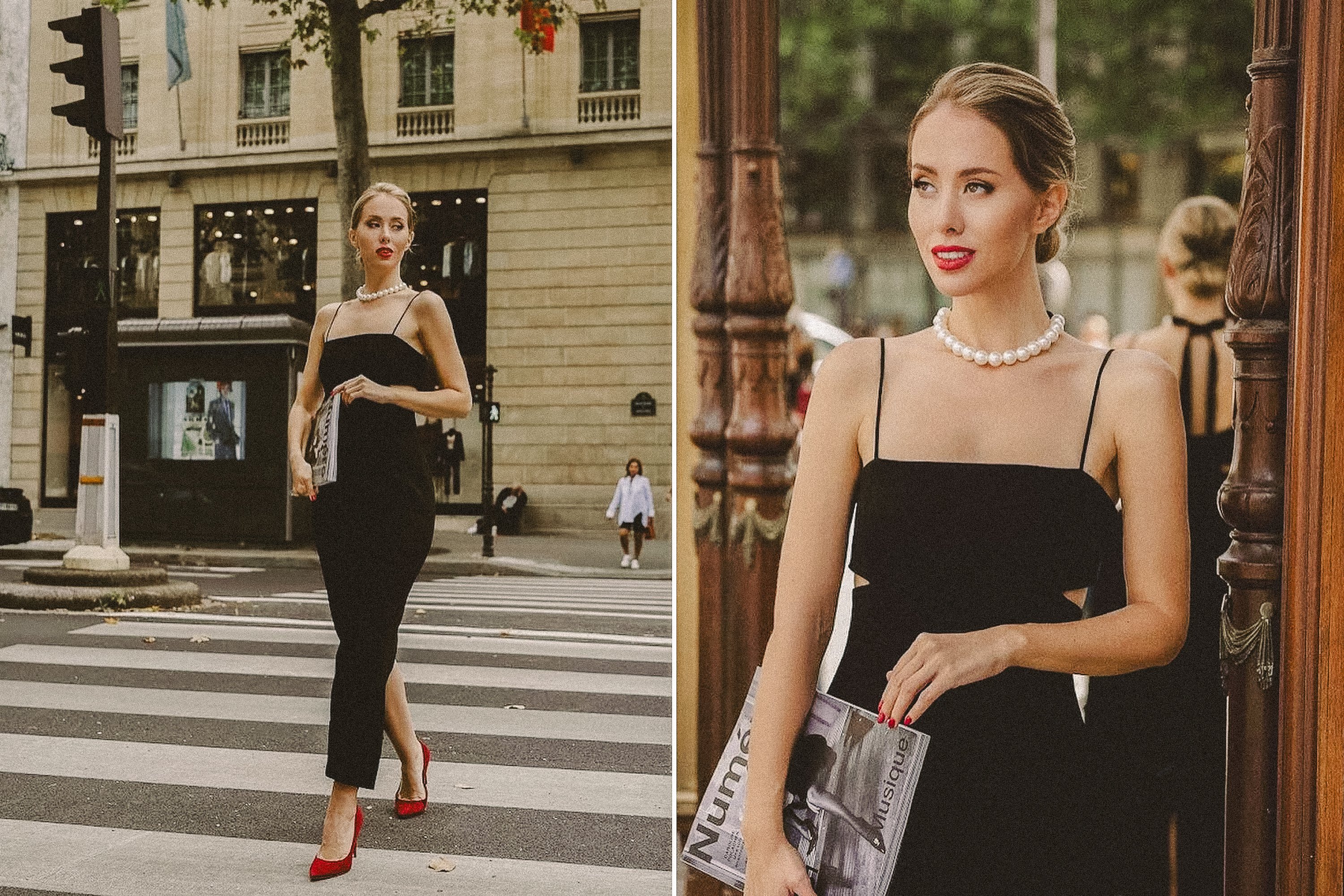
The French have been remarkably supportive of Ukraine. They’re open and genuinely trust in our professional capabilities. Early on, people told me that personality plays a crucial role in whether someone wants to work with you, but at the time, I didn’t fully believe it. Now I see how true it is. The French are drawn to stories, like the one about a Ukrainian woman who hadn’t yet mastered the language but still launched her own agency and has now been working in their market for two years.
For me, the biggest challenge is the language. Even after three years, I know I won’t speak it at the level of a native. This sometimes leads to communication gaps, especially when a client delivers a brief and explains their expectations. It requires real attentiveness. That’s why I always try to follow up with an email or a written summary after meetings — just to make sure we’ve understood each other correctly. It helps avoid any issues where someone might have misheard something or misspoken.
Ukrainians have a lot to offer, especially when it comes to digital communications. The key is to present and apply that experience wisely. Clients give it a try, see that it works, start to trust you more, and that’s when you get the chance to really show what you’re capable of. The French tend to be conservative — they’re used to doing things a certain way and are somewhat hesitant about change, especially when it comes to being publicly visible. That’s where Ukrainian flexibility becomes a strength. We can offer multiple solutions to a single problem. We’re not afraid of mistakes, and we’re ready to take responsibility.

Everyone on my team is Ukrainian. For me, that’s both a challenge and a statement — I want to show the French that we’re talented, efficient, and easy to work with. I bring people in based on the specific service needed — whether that’s building or migrating a website, SEO, creating ad visuals, or developing a logo. We respond quickly, adapt fast, and deliver. You could say we’re natural innovators.
Many still carry outdated stereotypes that Ukrainians aren’t highly qualified professionals. That’s partly due to earlier waves of migration, when many Ukrainian women worked in domestic care in Italy or in factories and as nannies in Poland and the Czech Republic. But now, brand books, social media graphics, and entire visual campaigns for French clients are being produced in Kyiv. I’m really proud that my designer created a logo for one of our clients — it was approved quickly, and everyone was happy. Before that, three different design agencies had submitted extensive proposals, but none were accepted, and the whole process had dragged on for a long time.
My workload is limited to 18 days a month — no more, since five weeks of annual leave are required by law. As for pricing, I look at what French agencies charge and set my rates slightly lower. For regular clients, I offer friendly rates; for new ones, the pricing is higher. The rate includes 23% company tax and 14% personal tax. Beyond a certain income threshold, the company is also subject to an additional 20% tax — which clients can later reclaim. Everyone sets their own minimum order. In my case, it starts at €200 — for something like a small event invitation. The upper limit would be full-service communications support.
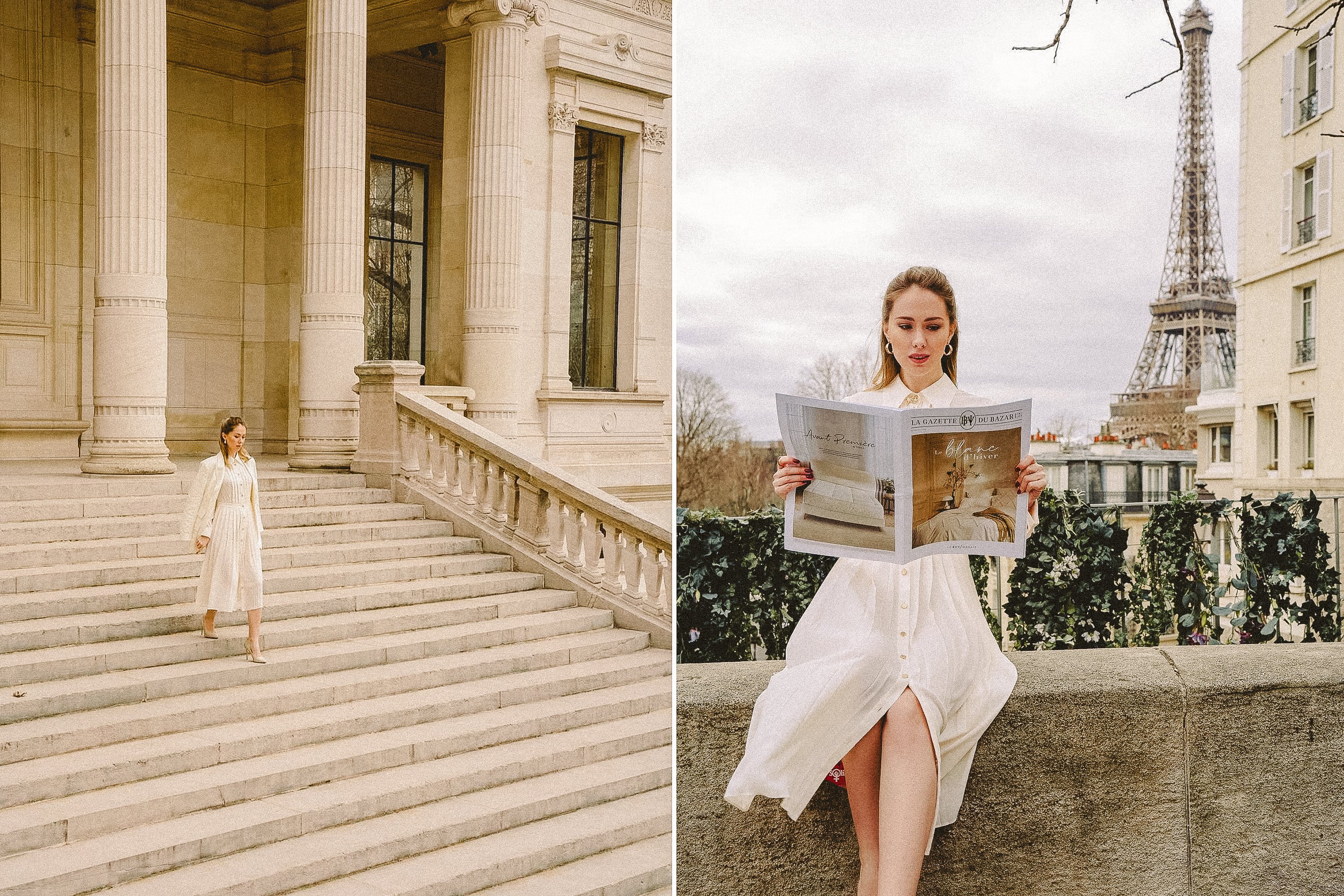
If there’s no signed document, the work doesn’t start — otherwise, I have no way to prove I delivered a service. It’s important to offer something that helps increase sales, improve a company’s image, or introduce something new and effective. You should always prepare a devis — even if the client only needs a logo. It includes all the details, pricing, and scope of work. Only after it’s signed can you begin. That document protects me: a signed devis guarantees payment. And in France, it’s a standard legal requirement. I’ve learned this the hard way. I once had all the emails, screenshots, a filled-out brief, confirmed timelines — everything was discussed and agreed. But we never signed the documents. When I delivered the communications strategy, the client said, “I never ordered this, and I won’t pay.” I lost time and money — and learned not to start anything without proper paperwork, no matter how much was discussed.
I’ve been very fortunate with the support I’ve received. At the start of this year, I had already worked with 11 clients — some for ongoing projects, others just once. The most important thing to remember is that it’s okay to make mistakes. People here know you’re not French, and they don’t see that as a problem. If something goes wrong, they’ll tell you to try harder — but no one will humiliate or laugh at you.
It really helps to talk to locals as much as possible and to ask your French friends to introduce you to people in their circles. I’m always sharing what I do, asking if they know anyone who might need my services — and whether they’d be willing to pass along a contact.
Don’t be afraid to present yourself. Believe that people are open to you. And try to ease up on yourself — everyone moves at their own pace. It’s better to move forward calmly than with constant inner pressure.
What made the biggest difference was the trust my first client placed in me — and his genuine willingness to help. And the fact that, despite all my doubts, I didn’t back down. I just closed my eyes and told myself, “Okay. I’ve got this. Let’s do it.”


